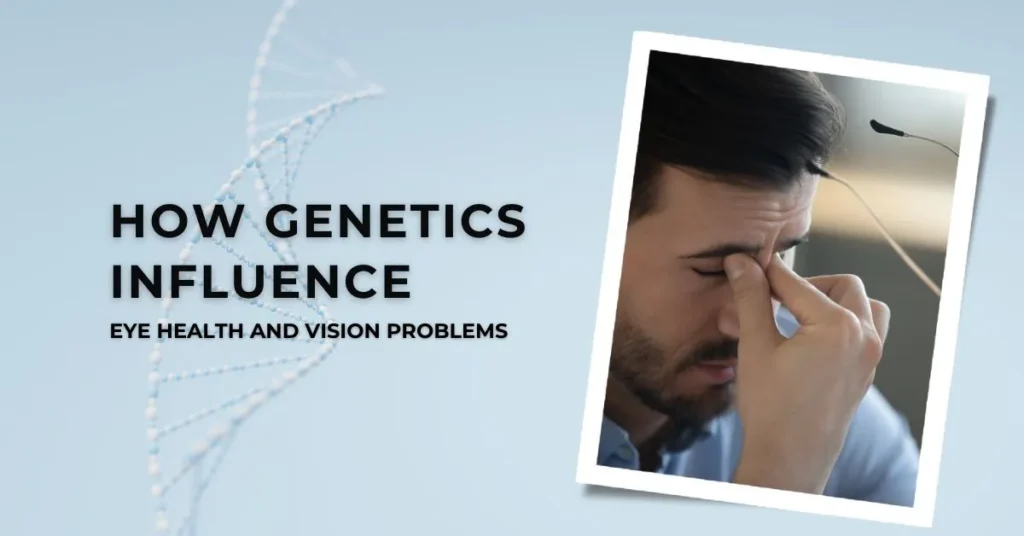How Genetics Influence Eye Health and Vision Problems

Genetics plays a significant role in determining our eye health and vision. While lifestyle factors and environmental influences contribute to eye conditions, understanding the genetic component is essential for early detection, prevention, and personalized treatment strategies. We will explore how genetics influences various aspects of eye health and the development of vision problems.

1. Inherited Eye Diseases
Many eye diseases have a genetic component, meaning they can be passed down from one generation to another. Conditions such as retinitis pigmentosa, congenital cataracts, and glaucoma can be caused by mutations in specific genes. Understanding the genetic basis of these diseases can help identify individuals at risk and facilitate early intervention to prevent vision loss.
2. Refractive Errors
Refractive errors, such as nearsightedness (myopia), farsightedness (hyperopia), and astigmatism, also have a genetic component. Studies have shown that these conditions tend to run in families, indicating a genetic predisposition. While environmental factors such as prolonged work and limited outdoor activities can contribute to the development of refractive errors, genetics play a significant role in determining an individual’s susceptibility.
3. Age-Related Macular Degeneration (AMD)
AMD is a leading cause of vision loss among older adults, and genetics play a crucial role in its development. Certain genetic variations have been linked to an increased risk of AMD, particularly in genes involved in regulating inflammation and maintaining retinal health. By identifying individuals with a genetic predisposition to AMD, healthcare providers can implement targeted screening and preventive measures to reduce the risk of disease progression.
4. Color Vision Deficiency
Colour vision deficiency, commonly known as colour blindness, is a condition characterized by the inability to perceive certain colours accurately. This condition is often inherited and affects males more frequently than females. Genetic mutations in the photopigment genes located on the X chromosome can lead to colour vision deficiency. Understanding the genetic basis of this condition can help individuals and their families adapt to living with colour vision deficiency and identify occupations where accurate colour perception is essential.
5. Optic Nerve Disorders
Optic nerve disorders, such as optic atrophy and optic neuritis, can have a genetic component. Mutations in genes involved in optic nerve development and function can predispose individuals to these conditions. Genetic testing and counselling can be valuable for individuals with a family history of optic nerve disorders, allowing them to make informed decisions about their eye health and potential treatment options.

In conclusion, genetics play a crucial role in influencing various aspects of eye health and the development of vision problems. By understanding the genetic basis of eye diseases and conditions, healthcare providers can implement personalized approaches to screening, prevention, and treatment. Genetic testing and counselling can empower individuals to take proactive steps to protect their eye health and preserve their vision for years to come.
Book your appointment now for all eye-related services.
Your Vision Our Focus


